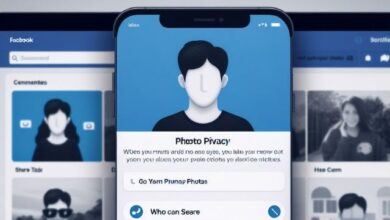What Is WhatsApp? How It Works, Tips, Tricks, and More
Unraveling WhatsApp: A Comprehensive Guide to Features, Usage, and Impact

What is WhatsApp? This question might seem redundant in today’s digital age, where WhatsApp has become a household name. It’s more than just an app on our smartphones; it’s how we connect with the world.
WhatsApp, a free-to-use service, has revolutionized the way we communicate. It has seamlessly integrated into our daily lives, making distances seem trivial and communication effortless. With a simple internet connection, it allows us to send messages, make voice and video calls, and share media and documents with individuals or groups, regardless of their location.
Launched in 2009 by Jan Koum and Brian Acton, WhatsApp’s user-friendly interface, coupled with its powerful features, quickly gained popularity. Today, it boasts over 2 billion users worldwide, making it one of the most widely used communication platforms.
The acquisition of WhatsApp by Facebook in 2014 further propelled its growth, integrating it with the social media giant’s ecosystem and introducing new features like end-to-end encryption for enhanced security.
In this article, we delve deeper into understanding WhatsApp, exploring its features, how it works, and sharing some tips and tricks to help you get the most out of this versatile app. Whether you’re a new user or a seasoned one looking to explore more, this guide is for you.
So, let’s embark on this journey to unravel the world of WhatsApp.
What is WhatsApp?
WhatsApp, a prominent name in instant messaging, has become an essential part of our digital lives. It is a free messaging app that utilizes your phone’s internet connection to enable communication with other WhatsApp users, eliminating SMS text message charges. Beyond text messaging, WhatsApp allows users to share documents, images, videos, and even locations. Additionally, the app supports free voice and video calls.
Founded in 2009 by former Yahoo employees Brian Acton and Jan Koum, WhatsApp experienced rapid growth, reaching over 2 billion users worldwide after being acquired by Facebook in 2014.
In 2023, WhatsApp introduced several new features aimed at enhancing user experience and improving security. Notable additions include a desktop app screen lock, short video messages, screen sharing, a redesigned interface for Android, and more. Additionally, new features like a dedicated video mode, voice status, and a private audience selector were launched.
What sets WhatsApp apart is its strong commitment to security. The app employs end-to-end encryption, ensuring that only the communicating parties can access and comprehend messages and calls.
How Does WhatsApp Work?
WhatsApp is a free messaging app that enables users to communicate with others using their phone’s internet connection, eliminating SMS charges. It supports various types of media sharing, including documents, images, videos, and location information. Additionally, users can make free voice and video calls.
The functioning of WhatsApp follows a client-server model. When a user sends a message or media file, it is initially sent to the server, which then queues it for the intended recipient. The recipient receives a notification upon having an internet connection.
An essential feature distinguishing WhatsApp from other messaging apps is its strong commitment to security. The application utilizes end-to-end encryption, ensuring that only the communicating parties can access the content of messages and calls. Not even WhatsApp itself can view the message content.
Aside from standard chats, users can engage in free voice and video calls, even for international communication. However, it’s important to note that such calls consume data when not connected to Wi-Fi.
WhatsApp offers high customization options for the app’s appearance and chat settings. Additional features include live location sharing, message “unsend” capability, and seamless data transfer when switching phone numbers.
In 2023, WhatsApp introduced various new features to enhance user experience and bolster security. These include a desktop app screen lock, short video messages, screen sharing, an updated Android interface, and more.
To begin using WhatsApp, visit the official website and download the app for your device (Android or iOS). Follow the provided steps, which include agreeing to the privacy policy, entering your phone number, verifying it with the sent code, and optionally restoring backups from Google Drive. Once verified, you can personalize your profile information with your name and picture. This information can be changed later if needed.
- How whatsapp community works
- Are WhatsApp Channels Safe? Secure Messaging
- Is WhatsApp Safe? Top Security Features to Use
Using WhatsApp
WhatsApp is a versatile messaging app that functions similarly to texting on smartphones. Here’s a step-by-step guide on how to use WhatsApp:
- Setting Up WhatsApp:
- Install WhatsApp from your phone’s app store.
- Open WhatsApp and tap ‘Agree & Continue’ after reading the privacy policy agreement.
- Enter your phone number and tap ‘Done.’
- WhatsApp will send an SMS with a verification code and link for verification.
- Once your number is verified, fill in your profile info by providing your name and optional picture.
- Sending a Chat:
- Tap ‘Chats’ and then tap the ‘New Chat’ icon.
- Select a contact with whom you want to chat.
- Tap the chat box and enter your message.
- Use your phone’s built-in emoji keyboard to include emoji in your chat.
- Tap the ‘Send’ icon to the right of the chat box to send your message.
- Adding Files and Formatting to Chats:
- Ensure you have a chat open.
- You can add files and format your chats to make your conversation more engaging.
WhatsApp also allows free voice and video calls, even internationally. Keep in mind that using this feature without Wi-Fi connection will consume your data.
WhatsApp prioritizes security for all users. Every message and call are end-to-end encrypted by default, ensuring that even WhatsApp cannot access the content of your messages. However, be cautious of phishing attempts. Never share personal information with unknown individuals, and don’t hesitate to block or report suspicious users.
Additionally, WhatsApp supports two-step verification through a six-digit PIN for added security. Regarding privacy, an early 2021 update mentioned that WhatsApp might share some data with Facebook, including your telephone number, location, product interactions, etc. Stay informed about the privacy settings and make choices that align with your preferences.
Tips and Tricks for Using WhatsApp
WhatsApp is a versatile app with many hidden features that can enhance your messaging experience. Here are some tips and tricks to help you get the most out of WhatsApp:
- Use WhatsApp Web and Desktop: WhatsApp isn’t just for your phone. There’s a web version and a desktop app, syncing with your phone for a more comfortable typing experience and a larger message-viewing screen.
- Back Up and Restore Chats: Back up your chats to Google Drive or iCloud to ensure you won’t lose important conversations, even if you switch phones.
- Use Stickers and Emojis: Express yourself with stickers and emojis. Download various sticker packs from the Sticker Store.
- Privacy Settings and Blocking Users: Adjust privacy settings as per your preference, controlling who can see your last seen, profile photo, about, status, and live location. Block unwanted contacts.
- Save Data in WhatsApp: Disable media auto-download on mobile data in Settings > Storage and data to save data while still receiving notifications and messages.
- Use Less Data for Calls: Enable “Use less data for calls” in Settings > Storage and data to save mobile data during calls.
- Send Smaller Photos to Save Space: Adjust image upload quality in Settings > Storage and data > Photo upload quality. Choose from “Auto,” “Best quality,” or “Data saver.”
- Get a Breakdown of WhatsApp Data Usage: Access WhatsApp’s data usage log in Settings > Storage and data > Network usage for a category-by-category look at data usage.
- View a Breakdown of Storage by Contact: Use the manage storage functionality in Settings > Storage and data > Manage storage to see a ranking of storage used by contacts or groups.
These tips and tricks should help you use WhatsApp more effectively and efficiently.
The Impact of WhatsApp
WhatsApp has significantly transformed our communication landscape, making it more accessible, efficient, and cost-effective. The introduction of end-to-end encryption by WhatsApp has elevated the standard of communication privacy, ensuring that messages remain accessible only to the intended sender and receiver. This heightened security feature has made WhatsApp the preferred choice for users who prioritize privacy.
During critical times such as the Nepal Earthquake, the Paris attacks, and the Chennai floods, WhatsApp has emerged as a crucial platform for seeking aid and coordinating relief efforts. It has played a vital role in saving lives and facilitating the distribution of essential resources, such as books, during emergencies.
Beyond crisis situations, WhatsApp has also demonstrated positive effects on users’ online bonding and self-esteem. Despite the potential negative impacts associated with prolonged social media exposure, WhatsApp stands out for its positive influence on mental health.
Economically, WhatsApp has become an indispensable tool for businesses, particularly small and medium enterprises, enabling them to engage with customers and execute effective marketing strategies. This has resulted in a significant boost to economic activities facilitated by the platform.
WhatsApp has not only revolutionized the way we communicate but has also left a lasting impact on various facets of our lives and society.
Frequently Asked Questions
What is WhatsApp and how does it work?
WhatsApp is a free instant messaging app that enables users to send text messages, voice messages, and video messages, make voice and video calls, and share various types of content. It relies on data for message transmission, avoiding the consumption of monthly text allowances. WhatsApp is compatible with phones, computers, and tablets.
What is WhatsApp really used for?
WhatsApp is primarily utilized for messaging, both one-on-one and in groups. It supports video and voice calls using data or Wi-Fi, rather than cellular minutes. Additionally, it facilitates the sharing of photos and videos with contacts.
What is WhatsApp most used for?
WhatsApp is most commonly used for international communication, serving as a crucial tool for individuals wishing to message or call family and friends abroad without incurring international charges. It holds particular popularity in Europe, India, and other global regions.
What is the working principle of WhatsApp?
WhatsApp employs a highly modified version of XMPP on an Ejabberd server for client-server communication. The XMPP on the client establishes an SSL socket to the WhatsApp servers. Messages sent are queued on the servers until the client opens or reconnects to retrieve them.
What are three benefits of WhatsApp?
Firstly, WhatsApp is free to use, allowing unlimited exchange of messages, images, and videos. Secondly, it provides end-to-end encryption, enhancing security compared to traditional SMS. Lastly, it can function without a data connection, as calls and texts can be sent over Wi-Fi.
Which WhatsApp is best and safe?
The official WhatsApp, owned by Meta, is considered one of the safest messaging services due to its end-to-end encryption on all chats. This feature makes it a highly secure messaging app. However, users should exercise caution when sharing personal information and clicking on suspicious links to ensure their safety.
Conclusion:
WhatsApp has undeniably transformed the way we communicate. Its user-friendly interface, robust features, and commitment to security have made it a staple in our digital lives. With over 2 billion active users sending more than 55 billion messages each day, WhatsApp’s impact is undeniable.
Despite the challenges and competition, it continues to innovate and provide a reliable communication platform for users worldwide. As we look to the future, it’s exciting to imagine what new features and improvements WhatsApp will introduce to continue enhancing our communication experiences. Indeed, WhatsApp is not just an app; it’s a revolution in communication.






